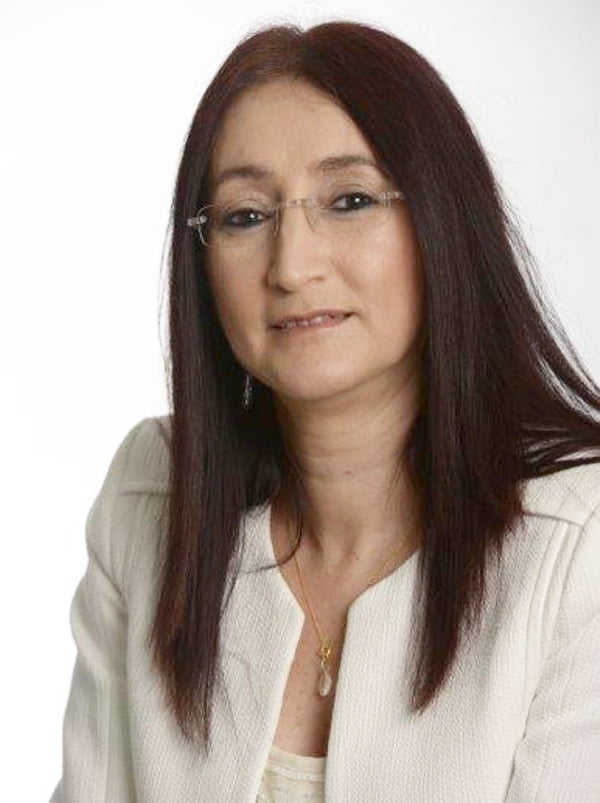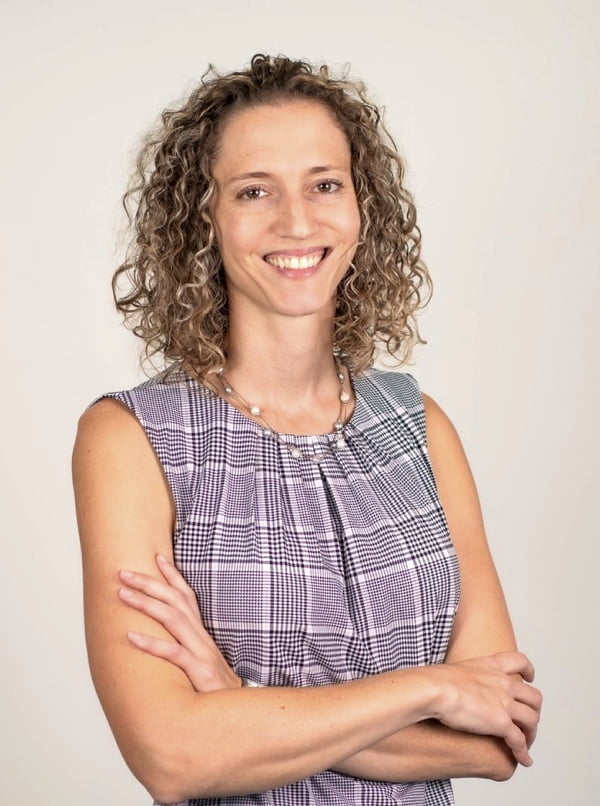‘When decision-makers are men, then even subconsciously there is a bias against women’
When Dr. Jasmin Ravid and her two female co-founders walk into a conference together, they bet on how long it will take for someone to comment on the fact that the company was set up by three women. Maybe 30 seconds, maybe a minute.
Regardless of who wins the bet, the three women behind Kinoko-Tech, an Israeli food-tech company, share the same conclusion: Why do men find it jarring to see women in hi-tech leadership positions?
“Everyone comments on it. They are not doing it from a place of bad intentions. But the fact that someone cannot enter a room and see three women entrepreneurs together without commenting ‘Oh my gosh’ amazes me,” Ravid tells NoCamels.
Women-led startups received just 2.3 percent of venture capital funding globally in 2020 according to an article published in the Harvard Business Review. While Israel is known for its innovation as the Startup Nation, it is not exempt from this global pattern. A report published by the Israeli Innovation Authority said 22 percent of hi-tech senior management positions are occupied by women. Only 6.2 percent of women are CEOs or presidents.
While Ravid and her two co-founders, Dr. Daria Feldman and Hadar Shohat, joke about their bet, they aren’t laughing about industry statistics. Their bet calls attention to a broader issue.
“When decision-makers are men, then even subconsciously, there is a bias against women. When you are working in a very homogenous company, society, or group of people, you are used to certain norms,” Ravid says.
Despite industry norms, several Israeli women serve as hi-tech senior leaders. The work of Jasmin Ravid, Dr. Anat Cohen-Dayag, Keren Herscovici, and Rotem Shacham – in food-tech, biopharmaceutical technologies, cybersecurity, and venture capital – is paving the way for women of the future. NoCamels spotlights these four women and their innovative and stereotype-defying work.
Dr Jasmin Ravid

Dr. Ravid has an extensive background in plant and nutritional sciences, higher academia, and research. Her company, Kinoko-Tech, works to produce the next generation of protein-rich food through fungi and fermentation technologies. At Hebrew University, the three co-founders discovered how to grow mushrooms into alternative meats. Kinoko’s innovation is making waves in the food-tech industry – an industry that Ravid notes has a significant number of females.
Ravid tells NoCamels that biology, food, and nutrition fields have higher percentages of women than fields like physics. Yet, Ravid notes that this industry breakdown reflects the fact that food is often associated with women and domesticity.
Even in these areas, Ravid explains that there is a slow decrease in the percentage of women as one progresses up the ladder of academic and entrepreneurial leadership, from holding degrees to owning a lab to the founding of a company.
“Even in this field, if you look at the faculty members and the professors, you will see a small percentage of women,” Ravid says.
She and her team are working to counter these stereotypes, though, and change what hi-tech leadership looks like. Ravid understands the ‘why’ behind the low percentage of women in hi-tech academic and industry leadership positions. It all ties back to the idea of a work-life balance.
Dr Anat Cohen-Dayag

This idea is one that Dr. Anat Cohen-Dayag, CEO and President of Israeli biopharmaceutical company Compugen, has experienced throughout her career.
“When my daughters were young, people were asking me: how do you leave your children that much at home with your husband? Isn’t he complaining? Don’t you feel guilty that you’re not with them?” Dr. Anat Cohen-Dayag tells NoCamels. “When my husband was going abroad for business, I don’t think anyone asked him if it was okay to leave the girls home with me.”
She has ample biological experience. With a Ph.D. from Israel’s Weizmann Institute and experience in scientific managerial roles, Dr. Cohen-Dayag brings a breadth of knowledge to the Compugen team. Compugen is an Israeli clinical-stage drug discovery and development company. Its predictive computational discovery platform identifies novel drug delivery targets and develops cancer immunotherapy therapeutics. Under her direction, Compugen has propelled the use of cutting-edge drug-discovery techniques.
As a female CEO and president, Cohen-Dayag has strong leadership skills. She tells NoCamels that the qualities of a leader are not determined by gender. Yet her journey to becoming an industry leader was one filled with female -specific obstacles – obstacles that have cultivated her passion to help other women.
“For women, it’s tougher. They need to deal with societal expectations. It relates to the traditional roles between men and women. It relates to how many role models there are for women,” Cohen-Dayag explains.
Sign up for our free weekly newsletter
Subscribe“Every point in time could be a breaking point. You need to be convinced that your career matters.”
Cohen-Dayag works to bring this encouragement to her company. Compugen’s team is 50 per cent female. The company aims to create a supportive culture that will synergize and enhance its clinical goals.
“In the business world, but also as a society, we could, be much more successful if there is a balanced contribution between men and women. That’s important,” Cohen-Dayag says.
Cohen-Dayag’s spirit of empowerment is shared by Keren Herscovici, Vice President of Finance at Panorays and co-founder and Managing Director of Woman2Woman. Working with Panorays – an Israeli cybersecurity company that has developed a platform to automate third-party security risk evaluation and management – as a female hi-tech leader catalyzed her work helping other women.
Keren Herscovici

Herscovici co-founded Woman2Woman, an Israeli mentorship program that aims to promote young women with extraordinary qualities from potential to excellence. Her company has helped more than 10,000 diverse Israeli women connect with female innovators and career opportunities. Herscovici recognizes the importance of mentorship in changing the hi-tech industry’s gender dynamics.
“Our goal is to create the next generation of women leaders in Israel,” Herscovici tells NoCamels.
“It is always about being innovative. What are your problems? What could be your solutions? Whether you are an entrepreneur or a CFO, how can you create more opportunities for yourself?”
Herscovici underscores the importance of prioritizing diversity. Working with Panorays, she and her team have set an agenda of proactively recruiting women. She recognizes that women, despite their credentials, may be hesitant to apply for jobs due to a lack of role models. Panorays is composed of 40 per cent women and she hopes her company, as well as the industry, will continue to make strides in the diversification of leadership.
“We have the right DNA in the company to enable not only women but diversity in general. It is about empowering people and making sure you have the right diversity in the company culture,” Herscovici says.
“It is really important for a company to put diversity as one of its targets and key performance initiatives.”
Rotem Shacham

Much like Kinoko-Tech’s Jasmin Ravid, Rotem Shacham is often the only female in the room when working with industry colleagues. A principal partner at Viola Ventures – an Israeli venture capital firm that focuses on funding technological innovation and transformational companies – Shacham succeeds in a predominantly male space.
“I bring a unique perspective because I am Rotem. I am obviously different from other people in the room. One of the things that I am different in is sometimes my gender, but I take it upon myself to speak out and use the seat that I have at the table to bring my voice with the understanding that it is different but it is equally important,” Shacham tells NoCamels.
She also works to use her leading VC position to invest in other women.
“People invest in people who are like themselves. We need to see it more and more. It’s a virtuous cycle. If you have more investors, you will have more entrepreneurs. If you have more entrepreneurs, you will also have more investors,” Shacham explains.
Shacham uses Israeli culture as inspiration in her work – and she encourages other women to do the same. Israel is home to a unique technology ecosystem with an entrepreneurial spirit across domains, Shacham explains. There is an innovative can-do attitude that might help women defy traditional hi-tech gender norms.
“We take rules as mere suggestions and not as strictly as other cultures. This leads to our ability to take moonshot goals and make them work in a limited-resource environment,” Shacham says. “We should take that mentality, as women, and leverage it. We should encourage ourselves to take on these moonshot activities in our professional lives. It is okay to fail, as long as you learn from it.”
All four women underscored the importance of mentorship and offered themselves as resources to other women.
“You can’t be what you can’t see,” Ravid says. Perhaps, at a future conference, Ravid and her colleagues will not have to place their usual bet. Instead, she hopes they will be joined by other teams of women, too.
Related posts

Editors’ & Readers’ Choice: 10 Favorite NoCamels Articles

Forward Facing: What Does The Future Hold For Israeli High-Tech?

Impact Innovation: Israeli Startups That Could Shape Our Future




Facebook comments